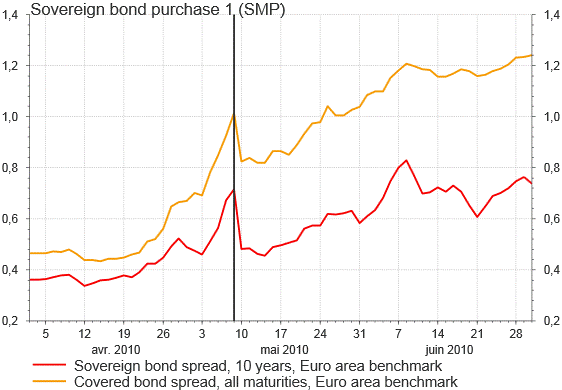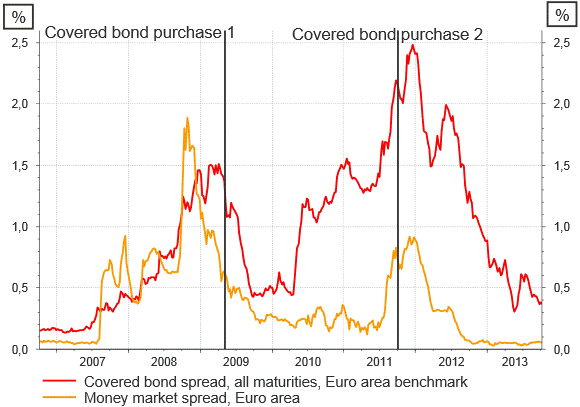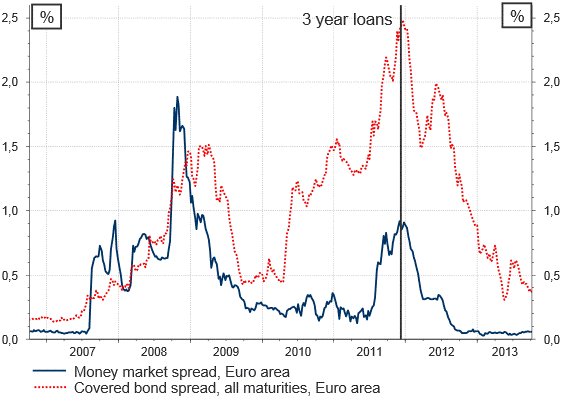| Author Name | SZCZERBOWICZ, Urszula (Visiting Scholar, RIETI) |
|---|---|
| Download / Links |
This Non Technical Summary does not constitute part of the above-captioned Discussion Paper but has been prepared for the purpose of providing a bold outline of the paper, based on findings from the analysis for the paper and focusing primarily on their implications for policy. For details of the analysis, read the captioned Discussion Paper. Views expressed in this Non Technical Summary are solely those of the individual author(s), and do not necessarily represent the views of the Research Institute of Economy, Trade and Industry (RIETI).
Between 2007 and 2012, the eurozone financial markets were deeply affected by the global financial crisis and the eurozone sovereign crisis. Uncertainty concerning banks' health and sovereign solvency increased risk premia and made it difficult for the euro area banks and governments to refinance themselves. The conventional monetary tool--interest rate setting--turned out to be ineffective in reducing the tensions in the financial markets. To prevent credit crunch, the European Central Bank (ECB) implemented the following unconventional monetary policies: exceptional liquidity provisions and asset purchases.
In this paper, we measure the effectiveness of the ECB's unconventional monetary policies in lowering borrowing costs for the eurozone banks and governments. To this purpose, we construct the database of monetary policy announcements and classify them into separate categories according to their transmission channel. We test via event-based regressions the impact of all of the announcements on money market spreads, covered bond spreads, and sovereign bond spreads in several euro area countries. Money markets and covered bond markets represent short term and long term refinancing sources for banks, respectively, while sovereign spreads approximate borrowing costs for governments.
We find that 3-year loans to banks and lowering the ECB deposit rate to zero significantly reduced persistent money market tensions in the eurozone. Furthermore, our results show the central bank interventions in sovereign markets are particularly effective when the sovereign risk is high. Interestingly, the interdependence between sovereign risk and bank risk plays an important role in a transmission of the ECB asset purchases: bank-covered bond purchases diminish sovereign spreads while sovereign bond purchases reduce covered bond spreads.
Figure 1: Impact of sovereign bond purchase program announcement (SMP)

Source: Thomson Reuters Datastream
Figure 2: Impact of covered bond purchases announcements

Source: Thomson Reuters Datastream
Figure 3: Impact of 3 year loans announcement

Source: Thomson Reuters Datastream

